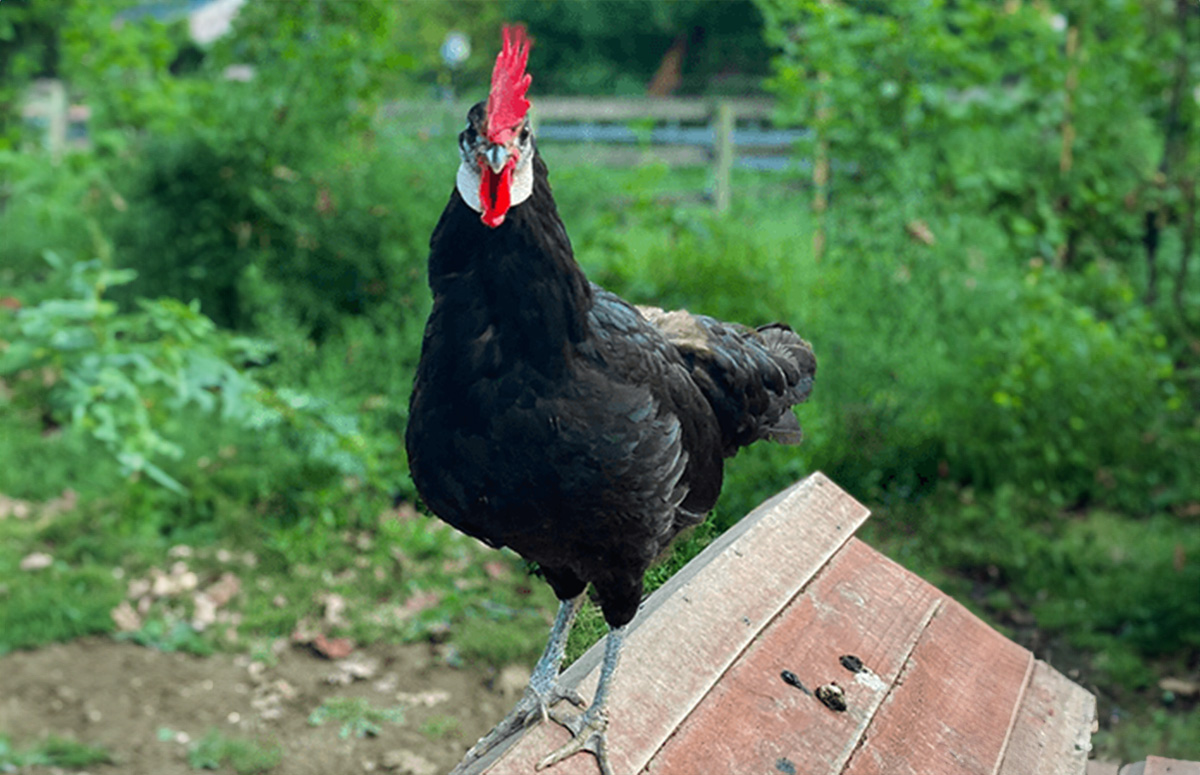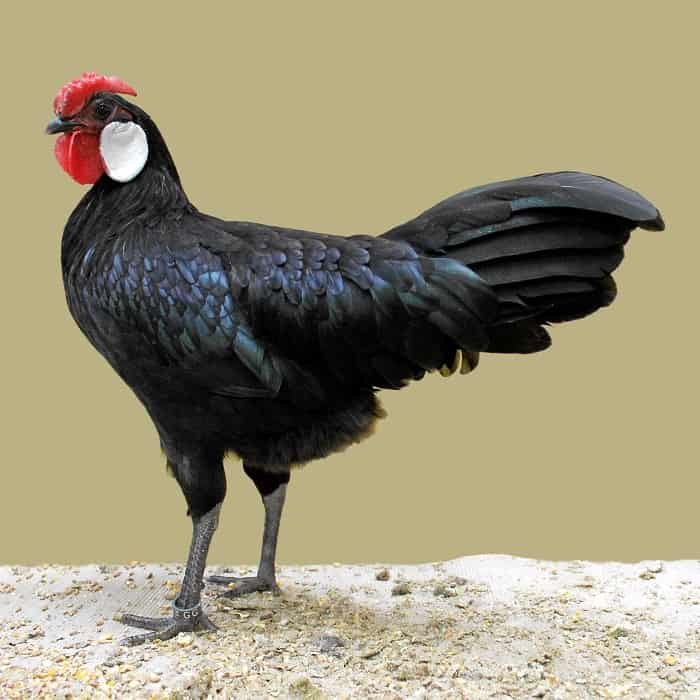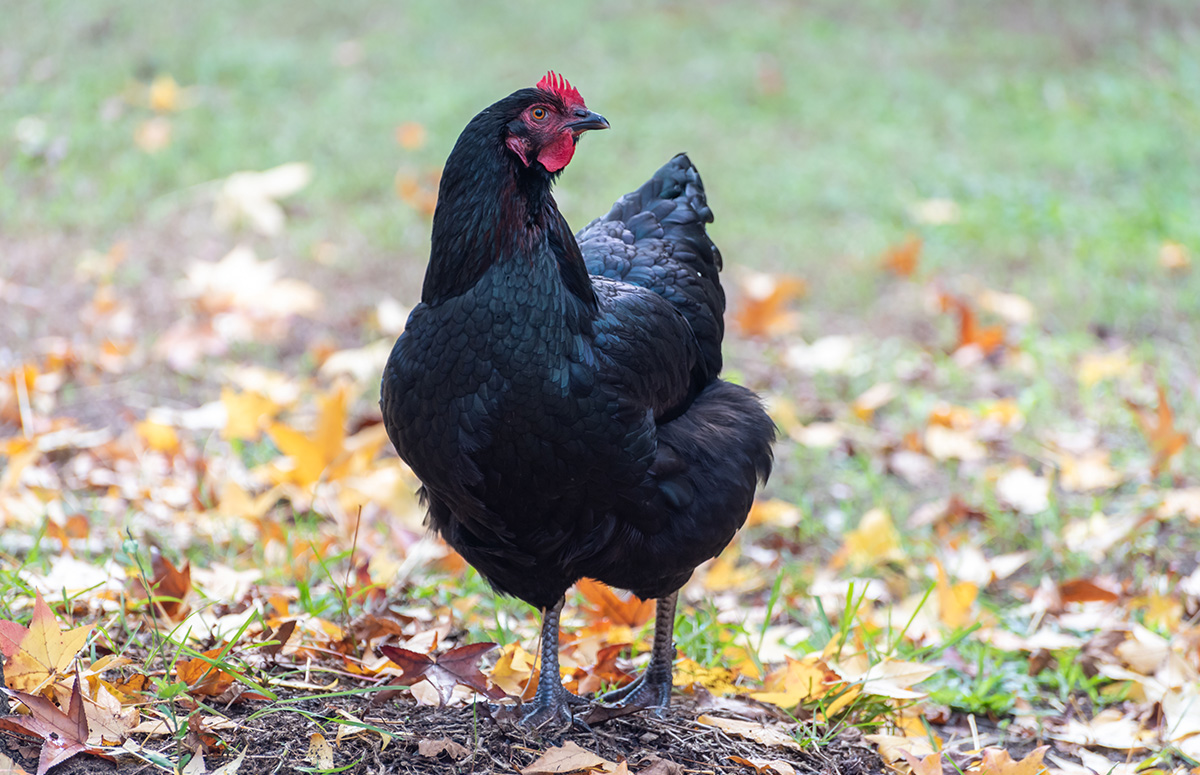Introducing the Black Chicken A Rare and Mystical Breed
Black chickens, often referred to as “black fowl” or “black birds,” are a unique and enigmatic breed of poultry that have captivated the hearts and minds of people around the world. These birds, with their striking dark plumage and mysterious aura, have a long and storied history that spans various cultures and traditions. In this comprehensive blog post, we will delve into the fascinating world of black chickens, exploring their origins, characteristics, cultural significance, and the importance of preserving these remarkable feathered creatures.
Delving into the Origins and History of Black Chickens

The Roots of Black Chicken Breeds
Black chickens have a rich and diverse history, with their origins tracing back to various geographical regions and ancient civilizations. These birds have been a part of human history for centuries, with evidence of their existence found in ancient texts, artwork, and archaeological records.
One of the earliest known origins of black chickens is believed to be in Asia, particularly in China and Japan, where these birds have been revered for their unique characteristics and cultural significance. Black chickens were often associated with spiritual and medicinal practices, and were highly valued for their meat, eggs, and feathers.
The Spread of Black Chickens Across the Globe
As trade routes and cultural exchanges expanded, black chickens gradually made their way to other parts of the world, including Europe, Africa, and the Americas. Each region has its own unique black chicken breeds, each with their own distinct physical attributes and cultural associations.
In Europe, for example, the Malines and Faverolles breeds are known for their striking black plumage, while in Africa, the Kuchi chicken is prized for its adaptability to harsh environments. Similarly, in the Americas, the Silkie and Sumatra breeds have gained popularity for their unique appearances and versatile uses.
The Significance of Black Chickens in Traditional Cultures
Throughout history, black chickens have held significant cultural and spiritual importance in many societies. In some traditions, these birds were believed to possess magical or mystical powers, and were often used in rituals, ceremonies, and traditional medicinal practices.
For instance, in some African cultures, black chickens were believed to have the ability to ward off evil spirits and bring good luck. Similarly, in Asian cultures, black chickens were often associated with longevity, fertility, and prosperity, and were highly revered in religious and cultural practices.
See more: https://139.59.222.10/
Unveiling the Unique Characteristics of Black Chicken Breeds

Diversity within the Black Chicken Family
Black chickens come in a wide variety of breeds, each with its own distinct physical characteristics, temperament, and uses. From the fluffy and adorable Silkie to the majestic and regal Malines, the black chicken family is a diverse and fascinating group of birds.
| Breed | Origin | Key Characteristics |
|---|---|---|
| Silkie | Asia | Fluffy, soft feathers, distinctive black skin and bones |
| Malines | Belgium | Large size, lustrous black plumage, calm temperament |
| Faverolles | France | Dual-purpose (meat and eggs), feathered feet, gentle nature |
| Kuchi | Africa | Adaptable to harsh environments, hardy constitution, black and white plumage |
| Sumatra | Indonesia | Striking iridescent black plumage, game-like appearance, agile and active |
Unique Physical Traits of Black Chickens
One of the most distinctive features of black chickens is their dark plumage, which can range from a deep, velvety black to a shimmering, iridescent hue. But the uniqueness of these birds goes far beyond their feathers.
- Skin and Bones: Many black chicken breeds, such as the Silkie, have a unique characteristic of having black skin and bones, which is caused by a genetic condition known as fibromelanosis.
- Feather Structure: The feathers of black chickens often have a distinctive structure, with a dense, fluffy texture that sets them apart from other chicken breeds.
- Comb and Wattle: The comb and wattle (the fleshy appendages on the head and neck) of black chickens can also be unique, with some breeds having a distinctive shape or color.
- Feet and Legs: Some black chicken breeds, such as the Faverolles, have feathered feet and legs, which add to their unique and charming appearance.
Variations in Size and Body Type
Black chickens come in a range of sizes and body types, from the compact and fluffy Silkie to the large and imposing Malines. This diversity allows for a wide variety of uses, from egg-laying to meat production, and even for ornamental or exhibition purposes.
- Small and Compact: Breeds like the Silkie and Sebright are known for their small, compact bodies, making them well-suited for backyard or urban environments.
- Medium-Sized: Breeds such as the Faverolles and Sumatra are often considered medium-sized, with a balance of meat and egg production.
- Large and Stately: The Malines and Orpington breeds are among the larger black chicken varieties, with impressive size and presence.
Identifying Key Physical Traits of Black Chicken Breeds

Plumage and Feather Patterns
As mentioned earlier, the distinctive black plumage is one of the most defining features of black chickens. But the specific patterns and shades of black can vary widely among different breeds.
- Solid Black: Some breeds, like the Malines and Faverolles, have a uniform, solid black plumage.
- Iridescent Black: Other breeds, such as the Sumatra, have a shimmering, iridescent black plumage that reflects light in a mesmerizing way.
- Laced or Spangled: Breeds like the Sebright may have a laced or spangled pattern, with black feathers that are tipped or edged with a lighter color.
Comb, Wattle, and Ear Lobe
The comb, wattle, and ear lobe are important physical features that can help distinguish different black chicken breeds.
- Comb Type: Black chickens can have a variety of comb types, such as the single comb, rose comb, or V-shaped comb.
- Wattle and Ear Lobe: The size, shape, and color of the wattle and ear lobe can also be unique to certain black chicken breeds.
Feet and Leg Characteristics
The feet and legs of black chickens can also be a distinguishing feature, with some breeds having feathered or non-feathered feet and legs, as well as variations in color and scale patterns.
- Feathered Feet and Legs: Breeds like the Faverolles and Malines often have feathered feet and legs, which add to their distinctive appearance.
- Non-Feathered Feet and Legs: Other black chicken breeds, such as the Sumatra and Malay, have clean, non-feathered feet and legs.
Body Shape and Size
As mentioned earlier, black chickens come in a range of sizes and body types, from the compact and fluffy Silkie to the large and imposing Malines.
- Compact and Rounded: Breeds like the Silkie and Sebright are known for their compact, rounded bodies.
- Medium-Sized and Balanced: Breeds such as the Faverolles and Sumatra have a more balanced, medium-sized body type.
- Large and Stately: The Malines and Orpington breeds are among the larger black chicken varieties, with impressive size and presence.
Exploring the Temperament and Behavior of Black Chickens

Personality and Behavior Traits
Black chickens, like all chicken breeds, have their own unique personality and behavioral characteristics. Understanding these traits can be helpful for those interested in raising or keeping these birds.
- Docile and Calm: Many black chicken breeds, such as the Malines and Faverolles, are known for their docile and calm temperament, making them well-suited for backyard or family settings.
- Active and Curious: Other black chicken breeds, like the Sumatra, are more active and curious, often displaying a more adventurous and lively personality.
- Protective and Broody: Some black chicken breeds, such as the Malay, are known to be more protective of their flock and more prone to going broody (sitting on eggs to hatch them).
Adaptability and Hardiness
Black chickens, as a whole, tend to be relatively hardy and adaptable birds, able to thrive in a variety of environments and climates.
- Climate Adaptability: Breeds like the Kuchi are well-suited to harsher, more extreme climates, while others, such as the Silkie, may be more sensitive to extreme temperatures.
- Foraging and Grazing: Many black chicken breeds are excellent foragers, able to supplement their diet by scavenging for insects, seeds, and other natural foods.
Egg-Laying and Meat Production
Black chickens can also vary in their utility, with some breeds being more focused on egg production, while others are better suited for meat production.
- Egg Layers: Breeds like the Faverolles and Orpington are known for their reliable egg-laying abilities, making them popular choices for backyard and small-scale egg production.
- Meat Birds: Larger black chicken breeds, such as the Malines and Malay, are often prized for their meat production, with a good balance of breast and thigh meat.
Understanding the Nutritional and Culinary Value of Black Chicken Meat

Nutritional Profile of Black Chicken Meat
Black chicken meat, like all poultry, is a valuable source of protein, vitamins, and minerals. However, there are some unique nutritional characteristics that set it apart from other chicken varieties.
- Protein Content: Black chicken meat is typically high in protein, making it a nutritious and filling choice for those looking to incorporate more protein into their diet.
- Iron and Mineral Content: Studies have shown that black chicken meat may contain higher levels of certain minerals, such as iron, compared to other chicken breeds.
- Antioxidant Properties: The dark pigmentation of black chicken meat is believed to be associated with higher levels of antioxidants, which can provide health benefits.
Culinary Versatility and Flavor
Black chicken meat is not only nutritious but also highly versatile in the kitchen. Its unique flavor and texture make it a popular choice for a variety of culinary applications.
- Flavor Profile: Black chicken meat is often described as having a richer, more intense flavor compared to standard white chicken meat, with a slightly gamier or earthy note.
- Culinary Uses: Due to its robust flavor and texture, black chicken meat can be used in a wide range of dishes, from stews and braises to grilled or roasted preparations.
- Cultural Significance: In some traditional cuisines, black chicken meat is highly prized and used in specific cultural dishes or preparations, such as traditional Chinese black chicken soup.
The Significance of Black Chickens in Traditional Cultures and Beliefs
Black Chickens in Asian Cultures
As mentioned earlier, black chickens have a long and significant history in Asian cultures, particularly in China and Japan. These birds have been revered for their unique characteristics and their association with various cultural and spiritual practices.
- Traditional Chinese Medicine: In traditional Chinese medicine, black chickens are believed to have medicinal properties and are often used in various tonics and remedies.
- Spiritual and Ceremonial Practices: In some Asian cultures, black chickens are seen as symbols of good luck, fertility, and longevity, and are often used in religious and cultural ceremonies.
Black Chickens in African Cultures
In certain African cultures, black chickens are also highly significant, with their own unique cultural associations and uses.
- Ritual and Spiritual Practices: In some African communities, black chickens are believed to have the power to ward off evil spirits and are used in various ritual and spiritual practices.
- Traditional Medicinal Uses: Similar to their use in Asian cultures, black chickens are sometimes used in traditional African medicinal practices for their perceived healing properties.
Black Chickens in Other Cultures
The cultural significance of black chickens is not limited to Asia and Africa; these birds have also played important roles in other parts of the world.
- European Folklore and Mythology: In some European folklore and mythology, black chickens are associated with witchcraft, superstition, and the occult.
- Native American Beliefs: In certain Native American traditions, black chickens are sometimes seen as sacred or spiritually significant animals.
Raising Black Chickens: Care, Breeding, and Housing Considerations
Providing Proper Care and Housing
Raising black chickens requires consideration of their specific needs and preferences to ensure their health, well-being, and productivity.
- Nutrition and Diet: Black chickens, like all chickens, require a balanced diet that includes a variety of grains, proteins, and other essential nutrients.
- Housing and Shelter: Providing a clean, spacious, and well-ventilated coop or run is crucial for the comfort and health of black chickens.
- Disease Prevention and Veterinary Care: Regular health checks, preventive measures, and prompt veterinary attention are essential for maintaining the well-being of black chickens.
Breeding and Genetic Preservation
Preserving the unique genetic diversity of black chicken breeds is crucial, as some of these birds are considered rare or endangered.
- Selective Breeding: Responsible and selective breeding practices are essential for maintaining the desired characteristics of black chicken breeds and preventing genetic bottlenecks.
- Conservation Efforts: Collaboration between breeders, enthusiasts, and organizations is necessary to ensure the long-term sustainability and preservation of black chicken breeds.
Challenges and Considerations
Raising black chickens, like any livestock, comes with its own set of challenges and considerations that must be addressed.
- Adaptation to Climate: Some black chicken breeds may be more sensitive to extreme temperatures or environmental conditions, requiring careful management and acclimation.
- Predator Threats: Ensuring the safety and security of black chickens from predators is a critical aspect of successful black chicken husbandry.
- Marketing and Sales: For those interested in raising black chickens commercially, understanding the market demand and finding suitable sales channels is an important consideration.
Popular Black Chicken Breeds Around the World
Asian Black Chicken Breeds
- Silkie: Originating in Asia, the Silkie is known for its fluffy, cotton-like plumage and unique black skin and bones.
- Sumatra: Hailing from Indonesia, the Sumatra is prized for its striking iridescent black plumage and game-like appearance.
- Shamo: A Japanese breed, the Shamo is known for its large size, muscular build, and aggressive temperament.
European Black Chicken Breeds
- Malines: Originating in Belgium, the Malines is a large, stately breed with a lustrous black plumage and calm demeanor.
- Faverolles: Hailing from France, the Faverolles is a dual-purpose breed with a distinctive appearance, including feathered feet and a gentle nature.
- Orpington: Although not exclusively black, the Orpington breed includes a popular black variety, known for its large size and excellent egg-laying abilities.
African Black Chicken Breeds
- Kuchi: Originating in Africa, the Kuchi is a hardy and adaptable breed known for its distinctive black and white plumage.
- Malay: Hailing from Malaysia, the Malay breed is prized for its meat production and is known for its protective and broody behavior.
Conclusion: The Allure and Importance of Black Chickens
Black chickens, with their captivating appearance, rich cultural history, and unique characteristics, have captivated the hearts and minds of people around the world. These remarkable feathered creatures are not only aesthetically pleasing but also hold significant cultural, spiritual, and practical value in various societies.
As we delve deeper into the world of black chickens, it becomes clear that these birds are not merely a curiosity but a vital part of our global heritage. By understanding and preserving the diversity of black chicken breeds, we can ensure that these enigmatic birds continue to thrive and inspire future generations.
Whether you are a backyard chicken enthusiast, a culinary adventurer, or simply someone captivated by the mystique of these birds, the allure of the black chicken is undeniable. Through careful stewardship, responsible breeding, and a deeper appreciation for their unique place in our world, we can ensure that the legacy of the black chicken endures, allowing these remarkable birds to continue to captivate and enrich our lives for generations to come.


